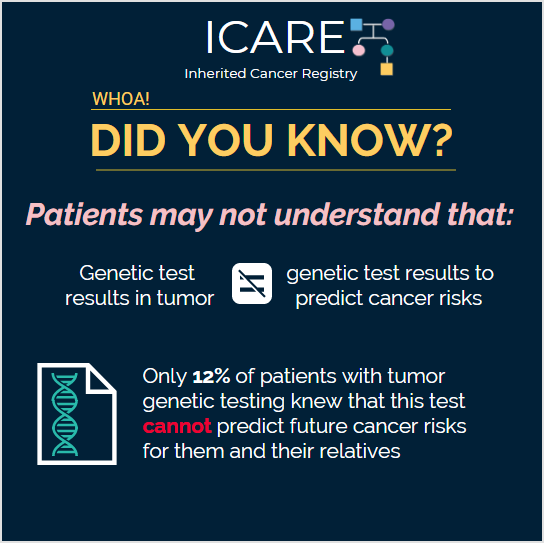 There are different types of genetic/DNA tests offered to patients with cancer:
There are different types of genetic/DNA tests offered to patients with cancer:
1) Tumor tests, mainly done to guide cancer treatment.
2) Blood or saliva tests (on normal DNA that individual was born with) to identify inherited cancer predisposition, which may also guide cancer treatment in some instances.
Genetic testing of the tumor detects mutations found in the tumor tissue itself and helps select the appropriate treatment. Genetic testing for hereditary cancer is done on normal DNA (DNA a person was born with) which is found in every cell of the body. Mutations found in normal DNA can detect an inherited predisposition to cancer and provides information for at-risk relatives.
A recent study of individuals with cancer who enrolled in a clinical trial for genetic testing of the tumor, revealed that although most knew that the results would be used to select their cancer treatment, a very small number knew that the test would NOT provide information about their future cancer risks or cancer risks to their family members.
This highlights the importance of focusing on improving the level of genetic health literacy of the public. Check out the article at https://healthitanalytics.com/news/cancer-patients-have-limited-understanding-of-genomic-test-results
